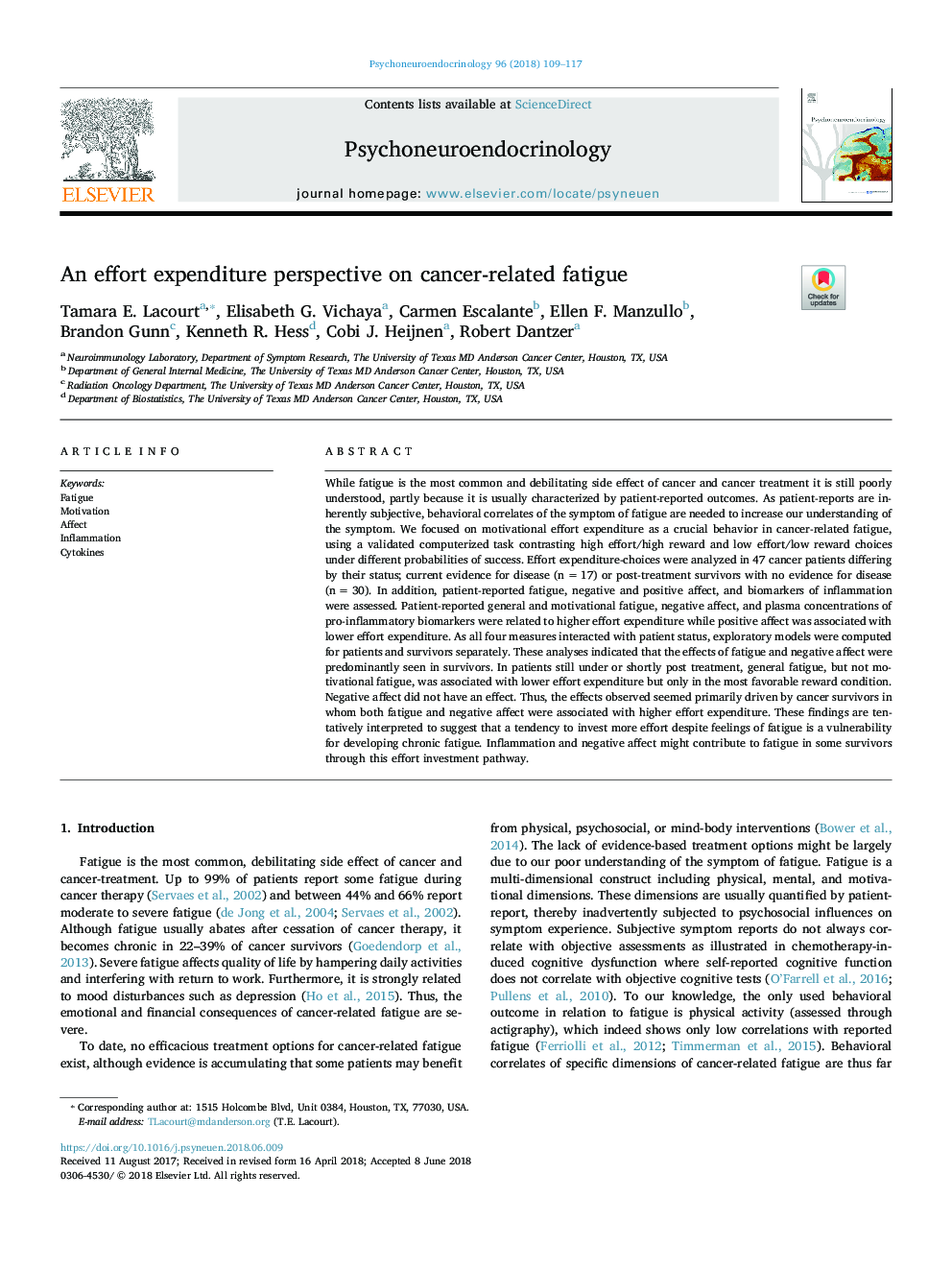| کد مقاله | کد نشریه | سال انتشار | مقاله انگلیسی | نسخه تمام متن |
|---|---|---|---|---|
| 6817492 | 1433947 | 2018 | 9 صفحه PDF | دانلود رایگان |
عنوان انگلیسی مقاله ISI
An effort expenditure perspective on cancer-related fatigue
ترجمه فارسی عنوان
چشم انداز هزینه تلاش برای خستگی مرتبط با سرطان
دانلود مقاله + سفارش ترجمه
دانلود مقاله ISI انگلیسی
رایگان برای ایرانیان
کلمات کلیدی
خستگی، انگیزه، تاثیر می گذارد، التهاب سیتوکین ها،
موضوعات مرتبط
علوم زیستی و بیوفناوری
بیوشیمی، ژنتیک و زیست شناسی مولکولی
علوم غدد
چکیده انگلیسی
While fatigue is the most common and debilitating side effect of cancer and cancer treatment it is still poorly understood, partly because it is usually characterized by patient-reported outcomes. As patient-reports are inherently subjective, behavioral correlates of the symptom of fatigue are needed to increase our understanding of the symptom. We focused on motivational effort expenditure as a crucial behavior in cancer-related fatigue, using a validated computerized task contrasting high effort/high reward and low effort/low reward choices under different probabilities of success. Effort expenditure-choices were analyzed in 47 cancer patients differing by their status; current evidence for disease (nâ¯=â¯17) or post-treatment survivors with no evidence for disease (nâ¯=â¯30). In addition, patient-reported fatigue, negative and positive affect, and biomarkers of inflammation were assessed. Patient-reported general and motivational fatigue, negative affect, and plasma concentrations of pro-inflammatory biomarkers were related to higher effort expenditure while positive affect was associated with lower effort expenditure. As all four measures interacted with patient status, exploratory models were computed for patients and survivors separately. These analyses indicated that the effects of fatigue and negative affect were predominantly seen in survivors. In patients still under or shortly post treatment, general fatigue, but not motivational fatigue, was associated with lower effort expenditure but only in the most favorable reward condition. Negative affect did not have an effect. Thus, the effects observed seemed primarily driven by cancer survivors in whom both fatigue and negative affect were associated with higher effort expenditure. These findings are tentatively interpreted to suggest that a tendency to invest more effort despite feelings of fatigue is a vulnerability for developing chronic fatigue. Inflammation and negative affect might contribute to fatigue in some survivors through this effort investment pathway.
ناشر
Database: Elsevier - ScienceDirect (ساینس دایرکت)
Journal: Psychoneuroendocrinology - Volume 96, October 2018, Pages 109-117
Journal: Psychoneuroendocrinology - Volume 96, October 2018, Pages 109-117
نویسندگان
Tamara E. Lacourt, Elisabeth G. Vichaya, Carmen Escalante, Ellen F. Manzullo, Brandon Gunn, Kenneth R. Hess, Cobi J. Heijnen, Robert Dantzer,
